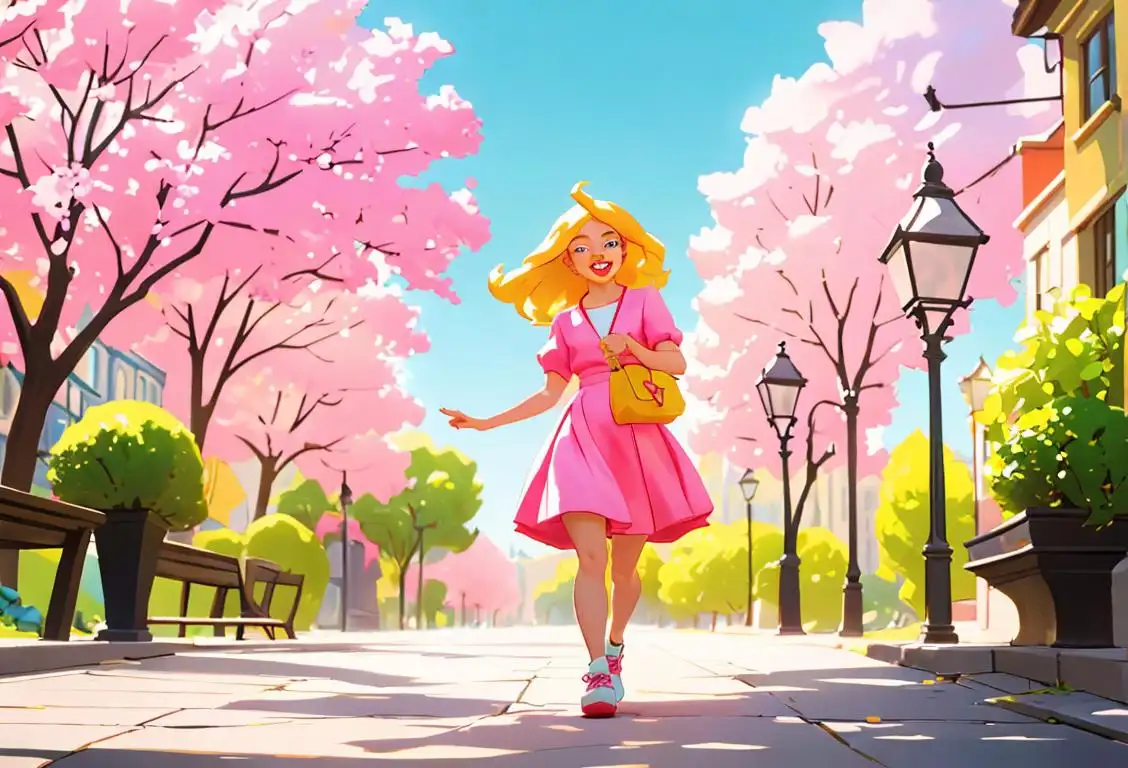National Nothing Day

Hey there! Get ready to celebrate National Nothing Day - a day dedicated to embracing the art of doing absolutely nothing! Kick back, relax, and dive into the delightful world of doing... well, nothing! This National Day was filled with online chatter, receiving a whopping 1576 mentions, with its peak on 16 Jan 2021.
When is Nothing Day?
It's national nothing day on the 16th January.
The Origins of National Nothing Day
Ever had one of those days where you just want to disconnect from the world, sit back, and have a breather? Well, that's precisely what National Nothing Day is all about. This light-hearted observance was created in 1973 by newspaper columnist Harold Pullman Coffin. Its purpose is simple - to give people a day off from all the hustle and bustle of everyday life. So put down your to-do list, silence those notifications, and take a break!
An Internet Sensation
As the popularity of National Days grew on the internet, it's no surprise that National Nothing Day found its way into the hearts of netizens worldwide. Over the years, the online celebrations have only grown, with social media platforms buzzing with posts dedicated to the joy of doing nothing. Memes, funny anecdotes, and even dubbing it as the ultimate relaxation day - people definitely know how to embrace the art of nothingness!
How to Celebrate National Nothing Day
Celebrating National Nothing Day is as simple as it gets. Just take a break from your hectic schedule and indulge in doing absolutely nothing. Spend the day in your comfiest PJs, binge-watch your favorite shows guilt-free, or lose yourself in a good book. It's all about relaxation, unwinding, and putting your stress on hold for a while. Remember, productivity can wait!
History behind the term 'Nothing'
14th century
The Birth of 'Nothing'
The term 'nothing' finds its roots in the English language during the 14th century. Derived from the Old English word 'nāthing', which literally means 'no thing', it was used to denote the absence or lack of something. This early usage was primarily focused on the concept of 'nothing' as opposed to 'something', emphasizing the idea of absence or non-existence.
16th century
Shakespeare's 'Much Ado About Nothing'
In 1598, the renowned English playwright William Shakespeare famously used the term 'nothing' as a pun and a central theme in his comedy play 'Much Ado About Nothing.' The title itself is a clever wordplay, where 'nothing' is pronounced as 'noting', meaning observation, noting, or paying attention. Shakespeare's play satirizes the concept of rumors, misunderstandings, and exaggerated reactions, suggesting that sometimes people make a fuss about insignificant things, hence the title.
17th century
John Milton's 'Paradise Lost'
In 1667, John Milton's epic poem 'Paradise Lost' introduced the term 'nothingness' to a philosophical context. Milton evokes the theological concept of 'nothingness' within the storyline of Adam and Eve's fall from paradise, exploring themes related to the origins of evil, emptiness, and the void. This usage of 'nothingness' deepens the understanding of 'nothing' not only as mere absence but as a nuanced concept with philosophical implications.
19th century
Gustave Flaubert's 'Madame Bovary'
In 1856, French writer Gustave Flaubert published his renowned novel 'Madame Bovary.' The novel's protagonist, Emma Bovary, longs for an extravagant and passionate life. Dissatisfied with her mundane existence, she seeks fulfillment through romantic affairs and materialistic desires. The term 'nothingness' is used metaphorically to describe the void she experiences, caught between her unrealistic expectations and the reality of her life, reflecting upon the emptiness that can arise from pursuing superficial dreams and desires.
20th century
Existentialism and Jean-Paul Sartre
The 20th century witnessed the rise of existentialist philosophy, which heavily explores the concept of 'nothingness'. French philosopher Jean-Paul Sartre, considered one of the key figures in existentialism, extensively discussed the idea of 'existential nothingness'. Sartre emphasized the freedom and responsibility of individuals in constructing their own meaning and purpose in life, ultimately delving into the profound existential questions of existence and nothingness.
Did you know?
Did you know that National Nothing Day's official motto is - 'In God we trust, all others pay cash'?Tagged
awareness fun relaxationFirst identified
12th March 2015Most mentioned on
16th January 2021Total mentions
1576Other days
Nothing Day
Jkap Day
Bubble Bath Day
Drop Everything And Read Day
Lazy Lazy Day
Walk Around Things Day
No Children Day
Massage Day
Ignore Day
Nap Day







